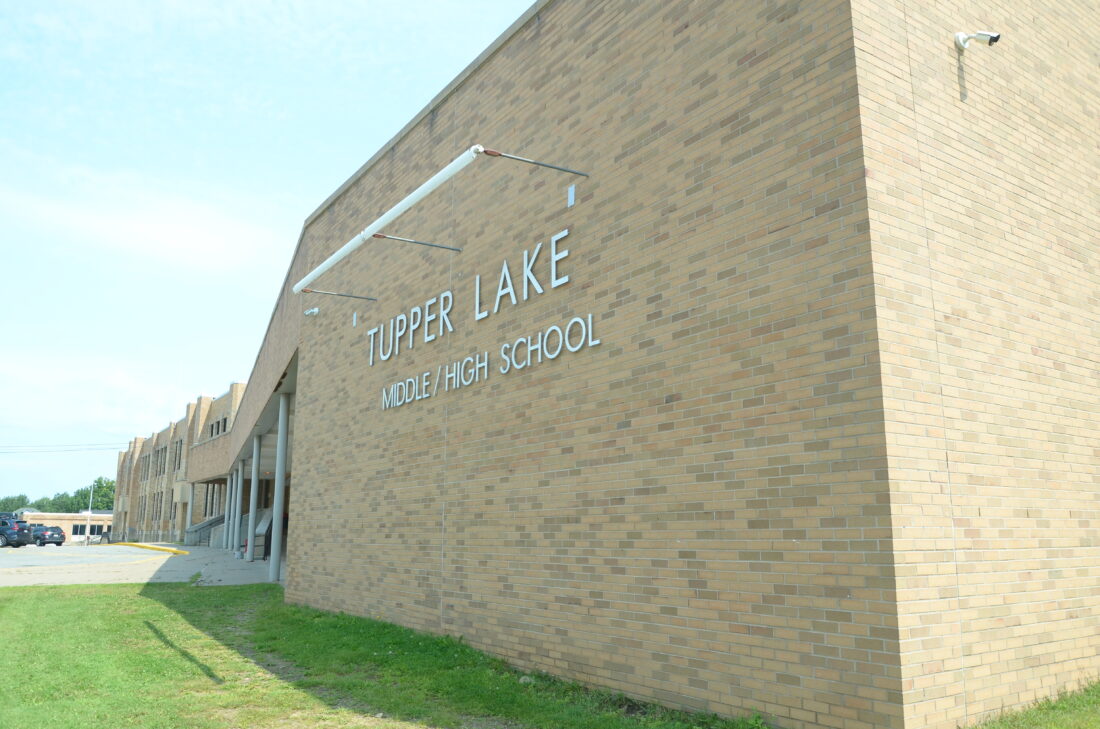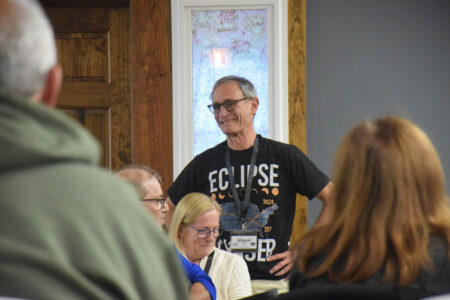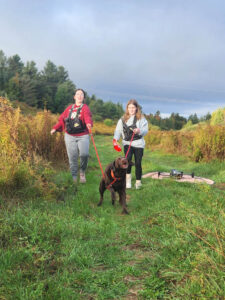Audit shows TLCSD failed to properly address lead in water

The Tupper Lake Middle-High School is seen on Aug. 14, 2025. (Enterprise photo — Aaron Marbone)
TUPPER LAKE — The Tupper Lake Central School District received audit results from the state comptroller’s office on Friday for its past lead testing and reporting. It was not good.
“District officials did not properly identify, report or implement needed remediation to reduce lead exposure in all potable water outlets as required by NYS Public Health Law and Department of Health regulations,” the summary began.
The audit period began on July 1, 2019, and concluded on Sept. 30, 2024. It looked into TLCSD’s lead testing and reporting practices. Under state law, districts are required to test potable water sources, with three statewide mandated test cycles since the program began in 2016.
¯ Cycle One: Sept. 6, 2016 to Oct. 31, 2016.
¯ Cycle Two: Jan. 1, 2020 to Dec. 31, 2020 (extended to June 30, 2021 due to the COVID-19 Pandemic).
¯ Cycle Three (ongoing): Jan. 1, 2023 to Dec. 31, 2025.
The audit focused on TLCSD’s actions during Cycle Two. It was one of 30 districts throughout the state that were randomly selected for the audit, according to TLCSD Superintendent Jaycee Welsh.
It found that in 156 of 310, or 50.3%, of water outlets — all of which were identified as being plausibly accessible for water consumption by students, staff and the public — were not sampled or properly exempted from the report.
Of the 30 districts in the random sample, 19 were reported on the comptroller’s website as being in a similar predicament as of press time Wednesday, ranging from 3% to 75% of their outlets not being properly sampled. The average figure was 36.4%. It’s unclear if any other districts that were audited had similar findings. For TLCSD, as was noted for the other districts in nearly identical language, the report found that this stems from district officials not having a sampling plan.
“Because there is no information on the lead levels of the 156 water outlets not sampled for testing, we were unable to determine whether officials identified and remediated all water outlets that would have required it,” the report states.
In Cycle Two, the report notes that the district sampled 105 water outlets, 22 of which exceeded the state action level for remediation at the time of 15 micrograms per liter, or 15 parts per billion. Of the 22 outlets, 14 were still in service without effective controls to stop their usage, or corrective action with a subsequent test indicating they were then below the action level.
The report notes that the action level was lowered to five parts per billion at the start of Cycle Three, and that outlets that were previously below the action level may no longer be. The remaining 49 outlets of the 310 in total were properly secured against use, allowing them to be exempt from testing, according to the report.
The audit adds that district officials failed to properly notify the local health department within one business day, or notify parents, guardians and staff within 10 days, for the test results that exceeded the action level for the initial Cycle Two tests that took place on Oct. 28, 2020. The report noted that the district did have its water samples tested at a certified lab.
“Instead, the District-contracted Jefferson-Lewis BOCES staff only reported these results through the (state) DOH’s Health Electronic Response Data System,” the report states.
The report recommends eight corrective actions for TLCSD and notes that a written corrective plan must be provided to the state comptroller within 90 days of the report, which can be viewed in its entirety at tinyurl.com/bdamvjat.
“The audit was not favorable,” Welsh said. “We did a host of things incorrectly. … The results weren’t reported to the community in a timely fashion. The results weren’t put on the website. A letter never went out.”
Though the Cycle Two testing was before her time with the district, Welsh said some of the errors could have been attributed to the COVID-19 pandemic at the time, consuming district officials’ and Jefferson-Lewis BOCES’ time.
Welsh, who began as the TLCSD superintendent in July 2024, added that the audit was a good learning experience for herself and Sean Auclair, the district’s buildings and grounds supervisor. She said the district is taking corrective action with its Cycle Three testing.
“We sent a letter out to our parents to let them know over (the communications platform) ParentSquare that we had several higher readings,” she said.
District officials will also be clearly marking outlets that are above action level as students come back this fall, and making sure that everyone in the school community understands the signage. Welsh said a second round of Cycle Three testing is slated for today, and district officials hope to have the results back by the start of the school year to have an accurate picture of which outlets are above and below actionable levels of five parts per billion.
She said when it comes to reducing lead levels, there is a combination of approaches district officials can take, such as improving filtration systems and — in more drastic instances — replacing some of the water piping, some of which she said was being replaced during this summer’s capital improvement project.
To view the TLCSD’s lead data, which details the levels at each outlet sampled, visit tinyurl.com/y2cmcsdv.



